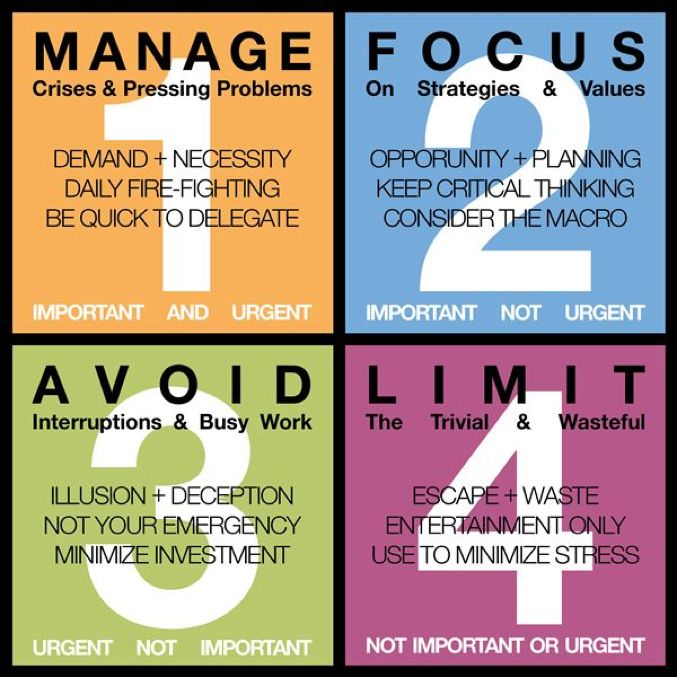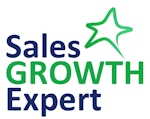I’ve burnt out a few times in my life. It happened when we had two girls under two. It has happened in the past, when I took on too much travelling, and when I committed myself to unrealistic deadlines.
If I am not very vigilant, it sometimes happens to me in a more sneaky, and gradual way. It happens when I get myself into habits that prevent me from being present with myself. When this happens, things begin to slip, and I am not at my best, for anybody! That’s when I have to get back to starting, and ending, my day with myself. This is no mean feat these days – I know I’m not on my own, for example, when I curse the invention of the smartphone.
The fifth stage of my Sales Growth Framework is ‘T is for Train the Talent’. You are the talent, and you need to be present with yourself, before others. In order to be fit for a day’s work, so that you can truly be effective and can deliver amazing value to your hard-earned customers, you need to start with you.
It’s all there, in the media, about looking after yourself. Arianna Huffington, in her book “Thrive” talks about health and wellbeing as a “Third Metric” after money and success. After a spectacular burn out, Arianna started again with herself. In fact, she has now made a business out of the concept of The Third Metric (http://www.thriveglobal.com).
Do you sleep with your phone by the bed? Its not rocket science to know that this is not a good thing to do! It’s easy to just accept that life is busy, that we can’t switch off from work, that emails must be answered, calls made, social media responded to. That’s just the way it is right? Wrong!
We all want to give our best selves to our spouse, our children, and our friends, but when the cracks start to appear, something needs to be done.
So why not stop?
These moments of distraction, which seem to be the way our lives our made up now, are what Linda Stone describes as “continuous partial attention”. This is defined as the “modern predicament of being constantly attuned to everything without fully concentrating on anything.”
Modern technology is great and has changed lives immeasurably for the better. It has enabled information to reach us immediately and to alert us – across all our handy ‘must-have’ gadgets – simultaneously. I used to get email notifications popping up on the top right of my screen, and my phone vibrated with the arrival of a text. I’ve worked out how to turn all of that off. It’s not really the fault of the technology, though, that’s just the enabler. What we need to do, is focus and be kind to ourselves.
If you can relate to this struggle, then here are some reminders for keeping it all going. It’s all about training your brain so you can find some time for you.
Six ways to stay present with yourself:
1 Get a morning routine.
There is a lot written on this subject, so I won’t dwell on it too much. For inspiration, just Google ‘morning ritual’. My morning routine starts way earlier that it used to. I am usually up by 05.00, I drink coffee, watch the birds on the feeder and remember to take some deep breaths. I’m working on the mindfulness, it works for me and reduces stress. I go for a 5k run on some days, and I’m thinking of getting a rebounder, for a little more bounce. At 07.00, I wake up the household and we’re off! For more great wellbeing tips, have a look at ‘It’s not about the fitness’ by Sarah-Anne Lucas.
2 Get a system.
If you know what tasks you’re going to be working on that day, it will help you to focus and complete them. The number of tasks and projects that get thrown at us on a daily basis would have seemed like madness 10 or 20 years ago. Creating a schedule therefore allows you to develop a sense of control over what may often feel like an uncontrollable list of tasks. I got a CRM a while ago, it helps me to manage meetings, contacts and marketing lists. I have invested in some CRM coaching, to help me to use it at its best. Look at http://www.blakeconsultants.co.uk
3 Create a ‘Today List” that’s based on what you can actually achieve.
If you have two meetings scheduled in the morning, for instance, you need to be realistic in what you can do during the afternoon. There are all sorts of tips and tricks out there to get you managing your time better – I like Covey’s time management grid, it works for many of my clients, and me. It’s about finding a rhythm that suits your way of working.

4 Switch off from electronic distractions – all of them.
This is not only necessary for when you’re concentrating on the task at hand, but it’s also increasingly vital for your brain health when you’re not working. It’s not possible to do this all the time, I realise, but carving out some time for you is more and more important. It means no email notifications, no beeps and sounds indicating a new incoming text message, no checking Facebook or Instagram for that funny picture your friend was going to post etc. – so switch your phone off and put it in a different room. Try a digital detox, to focus on work and relationships. Research shows it takes approximately 20-25 minutes to re-focus on work following an interruption: The New York Times wrote an article about it in 2013.

5 No multi-tasking.
Don’t create distractions by jumping from one task to the next, where your focus is constantly shifting. It makes us all less productive, less efficient and a lot more stressed – it could even lower our IQ. Want to know what effects multi-tasking can have on us? Then read the “The Multitasking Mind” from 2013 on the negative impact it can have. Allow yourself the opportunity to totally submerge yourself into the job at hand (see Tip 4!)
6 Get a hobby! Whether it’s gardening, reading, Pilates, or having a bath ( my favourite!) – or even something more high octane such as paragliding, kite-boarding or abseiling, it’s about completely switching off for a while and concentrating on the moment. Don’t forget Tip 4 whilst doing the hobby!

My message to you then is that in order to really be able to offer great customer service, to bring value to your clients, your team and your business, you have to start with you. Only you know the limits of what you can achieve each day, and it’s increasingly important in our inter-connected hyper-technological world to give yourself a break, switch off and be present with yourself. This makes it easier for you then to focus and deliver that promised customer value when you’re switched back on.
Look out for stage 6 of the Sales GROWTH Framework in my next blog, H is for Harness the Value. Here’s a previous post I’ve written about recognising the buying signals in customers.

